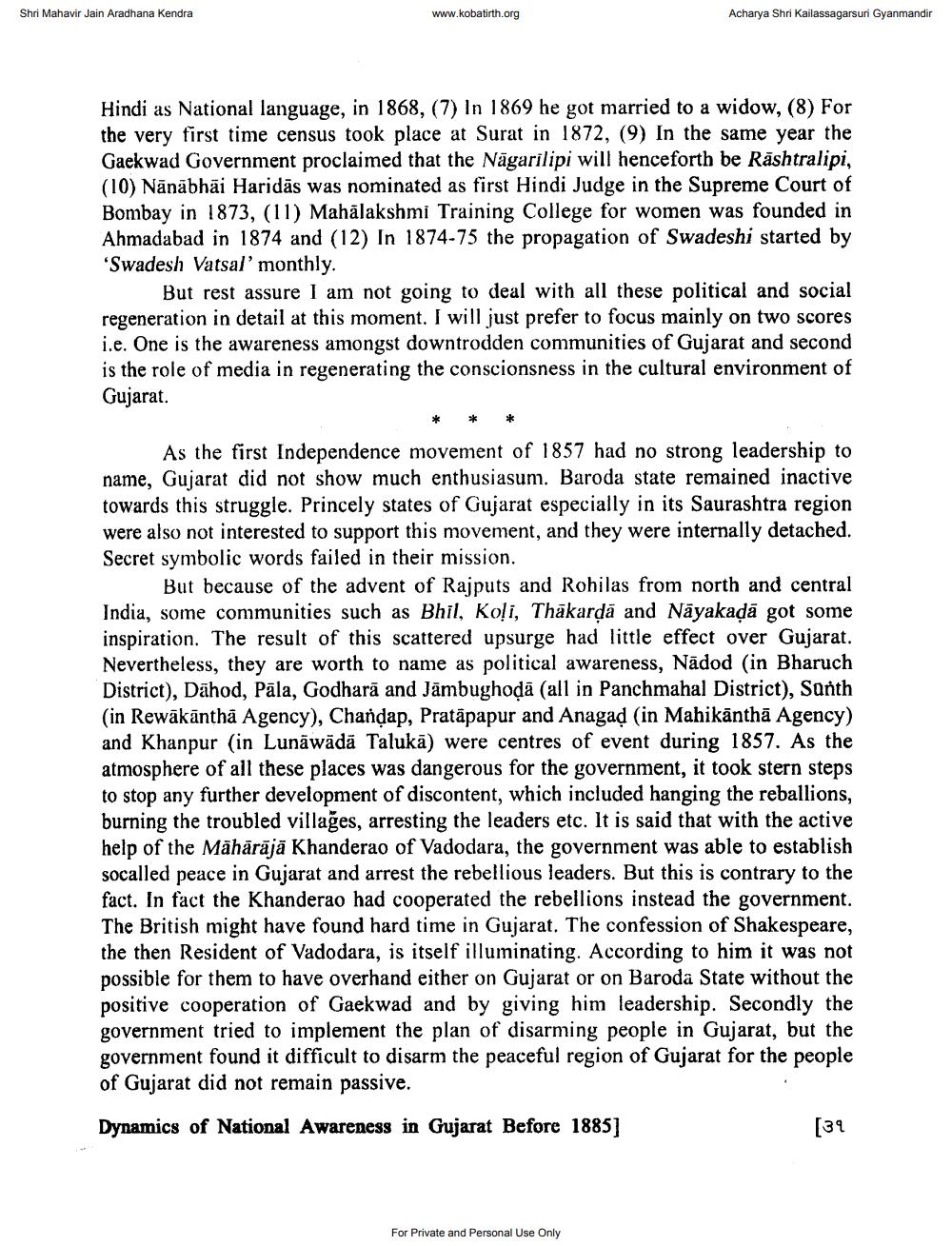________________
Shri Mahavir Jain Aradhana Kendra
www.kobatirth.org
Acharya Shri Kailassagarsuri Gyanmandir
Hindi as National language, in 1868, (7) In 1869 he got married to a widow, (8) For the very first time census took place at Surat in 1872, (9) In the same year the Gaekwad Government proclaimed that the Nāgarilipi will henceforth be Rashtralipi, (10) Nānābhāi Haridās was nominated as first Hindi Judge in the Supreme Court of Bombay in 1873, (11) Mahālakshmi Training College for women was founded in Ahmadabad in 1874 and (12) In 1874-75 the propagation of Swadeshi started by 'Swadesh Vatsal' monthly.
But rest assure I am not going to deal with all these political and social regeneration in detail at this moment. I will just prefer to focus mainly on two scores i.e. One is the awareness amongst downtrodden communities of Gujarat and second is the role of media in regenerating the conscionsness in the cultural environment of Gujarat.
As the first Independence movement of 1857 had no strong leadership to name, Gujarat did not show much enthusiasum. Baroda state remained inactive towards this struggle. Princely states of Gujarat especially in its Saurashtra region were also not interested to support this movement, and they were internally detached. Secret symbolic words failed in their mission.
But because of the advent of Rajputs and Rohilas from north and central India, some communities such as Bhil, Koli, Thākarda and Nayakadā got some inspiration. The result of this scattered upsurge had little effect over Gujarat. Nevertheless, they are worth to name as political awareness, Nādod (in Bharuch District), Dāhod, Pāla, Godharā and Jämbughodā (all in Panchmahal District), Santh
in Rewākānthä Agency), Chandap, Pratäpapur and Anagad (in Mahikanthā Agency) and Khanpur (in Lunāwādā Talukā) were centres of event during 1857. As the atmosphere of all these places was dangerous for the government, it took stern steps to stop any further development of discontent, which included hanging the reballions, burning the troubled villages, arresting the leaders etc. It is said that with the active help of the Māhārājā Khanderao of Vadodara, the government was able to establish socalled peace in Gujarat and arrest the rebellious leaders. But this is contrary to the fact. In fact the Khanderao had cooperated the rebellions instead the government. The British might have found hard time in Gujarat. The confession of Shakespeare, the then Resident of Vadodara, is itself illuminating. According to him it was not possible for them to have overhand either on Gujarat or on Baroda State without the positive cooperation of Gaekwad and by giving him leadership. Secondly the government tried to implement the plan of disarming people in Gujarat, but the government found it difficult to disarm the peaceful region of Gujarat for the people of Gujarat did not remain passive.
Dynamics of National Awareness in Gujarat Before 1885]
[૩૧
For Private and Personal Use Only




